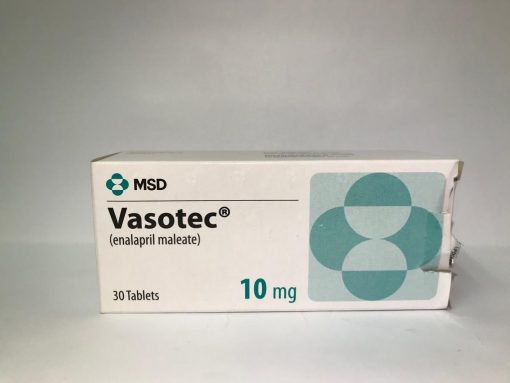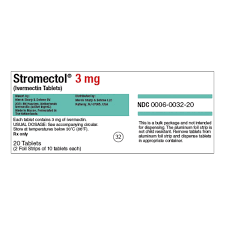

Vasotec: Managing High Blood Pressure and Heart Failure
Introduction: Understanding Vasotec
Vasotec, also known as Enalapril, serves as a vital medication in the treatment of high blood pressure (hypertension) and heart failure. This pharmaceutical falls under the category of ACE inhibitors, which are renowned for their efficacy in cardiovascular management. Understanding how Vasotec operates and its various applications is essential for patients and healthcare providers alike.
How Vasotec Works
Vasotec operates by inhibiting the production of a hormone responsible for narrowing blood vessels. By doing so, it promotes the relaxation and widening of blood vessels, facilitating smoother blood flow throughout the body. This mechanism not only helps in reducing blood pressure but also alleviates strain on the heart, making it a valuable asset in managing hypertension and heart failure.
Applications of Vasotec
In addition to its primary use in treating hypertension and heart failure, Vasotec has other important applications. It is often prescribed to prevent kidney damage in individuals with diabetes, as well as to improve survival rates following a heart attack. Furthermore, Vasotec may be integrated into treatment plans alongside other medications to effectively control hypertension and address various heart-related conditions.
Dosage and Administration
The appropriate dosage of Vasotec varies depending on the specific condition being treated and individual patient factors. Typically administered orally, it can be taken with or without food, once or twice daily. However, it is crucial for patients to strictly adhere to the dosage instructions provided by their healthcare professionals for optimal results.
Potential Side Effects
Like any medication, Vasotec can induce side effects, although they may not occur in every individual. Common side effects include dizziness, fatigue, cough, and headaches. However, more serious reactions such as facial swelling, difficulty breathing, and chest pain may also occur in rare cases. Patients should promptly seek medical attention if they experience any severe side effects.
Drug Interactions and Precautions
Vasotec has the potential to interact with certain medications and substances, including diuretics, NSAIDs, and potassium supplements. Therefore, patients should inform their healthcare providers about all medications they are taking, as well as any allergies or medical conditions, before starting Vasotec. This helps to prevent adverse interactions and ensures the safe and effective use of the medication.
Optimizing Vasotec Treatment
In conclusion, Vasotec is a valuable medication for managing high blood pressure and heart failure. Its mechanism of action, applications, dosage guidelines, potential side effects, and precautions should be thoroughly understood by both patients and healthcare providers. By adhering to prescribed dosages, being vigilant about potential side effects, and communicating openly with healthcare professionals, patients can optimize the benefits of Vasotec treatment while minimizing risks.
What is Vasotec?
Vasotec is an angiotensin-converting enzyme (ACE) inhibitor primarily utilized for treating high blood pressure and heart failure. Delve into its mechanism of action and therapeutic applications.
Managing Hypertension and Heart Failure
Explore how Vasotec aids in lowering blood pressure and alleviating symptoms of heart failure by relaxing blood vessels and reducing cardiac strain.
Preventing Kidney Damage in Diabetes
Uncover Vasotec’s role in preventing kidney damage among diabetic individuals, mitigating the progression of renal complications alongside managing blood pressure.
Dosage and Administration
Gain insights into the recommended dosage regimen and frequency of Vasotec administration, crucial for optimal therapeutic outcomes.
Potential Side Effects and Interactions
Learn about the possible adverse effects such as dizziness and cough, as well as interactions with other medications, emphasizing the importance of medical supervision.
Navigating Vasotec Therapy
Summarize the significance of adhering to Vasotec treatment plans, understanding its multifaceted benefits, and seeking professional guidance for optimal management.
Uses of Vasotec
Vasotec, also identified by its generic name enalapril, is a medication categorized under angiotensin converting enzyme (ACE) inhibitors. Its primary application lies in the management of high blood pressure (hypertension) in adults and children aged one month and older. By promoting relaxation and dilation of blood vessels, Vasotec enhances blood circulation and mitigates high blood pressure. It is frequently recommended as an initial course of treatment for hypertension, either as a standalone therapy or in conjunction with other medications.
Beyond its role in hypertension, Vasotec finds utility in addressing heart failure among patients unable to tolerate alternative medications or as part of combination therapy. By alleviating the heart’s workload and enhancing its pumping efficiency, Vasotec contributes to heart function improvement. Moreover, it is prescribed to mitigate the risk of heart failure onset post-heart attack and to manage diabetes-induced kidney complications.
Moreover, Vasotec demonstrates efficacy in treating specific heart conditions like left ventricular dysfunction and hypertrophic cardiomyopathy. It aids in symptom alleviation, boosting exercise tolerance, and curbing hospitalization risks for patients grappling with these ailments.
Typically administered orally in tablet form, Vasotec dosages vary based on individual conditions and treatment responses. Adhering to prescribed dosages and seeking guidance from healthcare professionals regarding proper usage and monitoring is crucial. Common side effects of Vasotec encompass dizziness, headaches, coughing, and gastrointestinal disturbances.
Dosage and Administration
Adherence to your doctor’s prescription is essential when taking Vasotec. Dosage adjustments are made based on individual conditions and responses to the medication.
Typically, the initial dose of Vasotec is 5 milligrams, administered once or twice daily. Your doctor may modify this dosage according to your blood pressure readings.
For individuals undergoing treatment for heart failure, the starting dose is generally lower, ranging from 2.5 to 5 milligrams, with gradual increments over time to achieve optimal results.
Maintaining a consistent intake schedule is crucial. Take Vasotec at the same time daily to ensure a steady presence in your system and maximize effectiveness. Skipping doses may compromise its efficacy, so it’s important to avoid missing any.
In case of a missed dose, take it promptly upon recall. However, if it’s nearing your next scheduled dose, skip the missed one and resume your regular dosing routine. Avoid doubling up on doses to compensate for a missed administration.
Common Side Effects
During Vasotec usage, several common side effects might manifest, and it’s crucial to recognize these potential effects as they can vary among individuals:
- Dizziness: Some individuals may encounter dizziness due to Vasotec, often stemming from a drop in blood pressure. This sensation may be particularly noticeable when transitioning quickly from sitting or lying to standing positions.
- Cough: A persistent dry cough is among the common side effects of Vasotec, occurring in a minority of users. This phenomenon is believed to be linked to the inhibition of an enzyme responsible for breaking down lung substances.
- Nausea: Vasotec usage might lead to feelings of nausea and occasional vomiting. These symptoms tend to be mild and could diminish as your body adapts to the medication.
- Headache: Headaches may arise in some individuals while using Vasotec. Ranging from mild to severe, these headaches can often be alleviated with over-the-counter pain relievers.
- Fatigue: Feeling tired or fatigued is another common occurrence associated with Vasotec usage. This effect might be attributed to alterations in blood pressure or other cardiovascular impacts of the medication.
Should you experience any of these side effects or notice any unusual symptoms while on Vasotec, promptly inform your healthcare provider. They can discuss your symptoms with you and make any necessary adjustments to your treatment regimen.
Serious Side Effects
Vasotec usage can lead to several serious side effects necessitating prompt medical intervention. One such effect is hypotension, characterized by low blood pressure, which may manifest as dizziness, lightheadedness, and fainting. Another critical side effect is hyperkalemia, marked by elevated potassium levels in the bloodstream, potentially triggering abnormal heart rhythms and posing a life-threatening risk.
Angioedema, involving swelling of the face, lips, tongue, or throat, presents another serious concern. This condition can impede breathing and demands immediate medical attention. Renal failure is another grave side effect, indicated by reduced urine output and fluid retention.
Additional serious side effects of Vasotec encompass neutropenia, characterized by a decline in white blood cell count, and agranulocytosis, a severe reduction in white blood cell count, both of which compromise immune function and heighten susceptibility to infections. Liver dysfunction and jaundice, evidenced by yellowing of the skin and eyes, are also noteworthy serious side effects necessitating medical evaluation.
Should any of these serious side effects manifest during Vasotec treatment, it is imperative to seek urgent medical attention. Your healthcare provider can assess the situation and devise an appropriate management plan to address these effects and safeguard your overall health and well-being.
Drug Interactions
Being mindful of potential drug interactions is crucial when using Vasotec. Certain medications can interact with Vasotec, affecting its efficacy or increasing the risk of side effects. It’s essential to inform your healthcare provider about all medications you’re taking, including prescriptions, over-the-counter drugs, and herbal supplements.
Nonsteroidal anti-inflammatory drugs (NSAIDs) like ibuprofen or aspirin represent one class of drugs that may interact with Vasotec. These medications could potentially diminish Vasotec’s effectiveness in lowering blood pressure. Consult your doctor to determine the safety of combining NSAIDs with Vasotec.
Diuretics, also known as water pills, constitute another class of drugs that may interact with Vasotec. When taken together, diuretics can heighten the risk of low blood pressure. Your doctor may need to adjust the dosage of these medications or monitor your blood pressure more closely if you’re using both Vasotec and diuretics.
Additionally, certain medications used to manage diabetes, such as insulin or oral hypoglycemic drugs, may interact with Vasotec and influence blood sugar levels. It’s crucial to monitor your blood sugar levels diligently if you’re taking both Vasotec and diabetes medications.
Other medications that might interact with Vasotec include potassium supplements, lithium, and certain drugs used to treat high cholesterol or heart conditions. Inform your healthcare provider about all your medications to ensure the safe and effective use of Vasotec.
Before commencing Vasotec, discuss potential drug interactions with your doctor and stay vigilant about monitoring blood pressure and blood sugar levels if you’re concurrently using Vasotec and interacting medications.
Precautions and Contraindications
Before taking Vasotec, it is important to consider certain precautions:
- Inform your healthcare provider about any allergies you may have, including allergies to Vasotec or any other ACE inhibitors. This medication may contain inactive ingredients that can cause allergic reactions.
- Discuss your medical history with your doctor, especially if you have a history of kidney disease, liver disease, diabetes, or dehydration. These conditions may affect the way Vasotec works in your body.
- Let your healthcare provider know about all the medications you are currently taking, including prescription drugs, over-the-counter medications, and herbal supplements. Certain medications may interact with Vasotec and cause harmful side effects.
- Avoid drinking alcohol while taking Vasotec, as it may increase your risk of experiencing low blood pressure or dizziness.
- If you are pregnant or planning to become pregnant, inform your doctor. Vasotec may harm an unborn baby and should be used with caution during pregnancy.
- If you are breastfeeding, consult your healthcare provider before taking Vasotec. This medication may pass into breast milk and could harm a nursing baby.
Vasotec should not be taken in the following situations:
- If you have a history of angioedema (swelling of the face, lips, tongue, or throat) caused by previous use of an ACE inhibitor.
- If you are allergic to any other ACE inhibitor medications.
- If you have a hereditary condition called angioedema or a history of it in your family.
- If you have experienced symptoms such as difficulty swallowing or breathing, or swelling of the arms, legs, face, lips, tongue, or throat after taking any medication that contains an ACE inhibitor.
It is essential to have a thorough discussion with your healthcare provider about precautions and contraindications before starting Vasotec. Following these guidelines can help minimize potential risks and ensure the safe and effective use of this medication.


